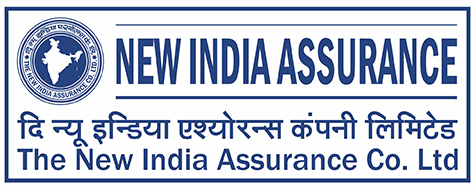NCDRC Directs New India Assurance to Settle Substantial Claim in Deceased Policyholder’s Case
In a recent development, the National Consumer Disputes Redressal Commission (NCDRC) has modified an earlier order, instructing New India Assurance Co Ltd to reimburse a significant portion of medical expenses incurred by the deceased policyholder. The NCDRC, while addressing the case of Mumbai-based Bhogilal Mehta, who met a tragic end after a fall in Indonesia, has directed the insurer to pay Rs14.06 lakh, which accounts for 60% of the total medical expenses.
A Fall, a Tragedy, and a Disputed Claim:
Bhogilal Mehta’s unfortunate incident occurred on September 29, 2010, when he fell down a staircase in Indonesia. After immediate hospitalization in Indonesia and subsequent treatments in Singapore, Mr. Mehta returned to Mumbai for further medical care. However, despite extensive treatments at renowned hospitals like PD Hinduja, Fortis, and Jaslok, he succumbed to his injuries on January 9, 2013.
His wife, Jyoti Mehta, filed a claim with New India Assurance in April 2012, seeking rightful compensation for the medical expenses incurred. However, the insurer initially offered a mere Rs25,200, prompting Ms. Mehta to approach the Maharashtra State Consumer Disputes Redressal Commission for a fair resolution.

NCDRC’s Verdict and Unveiling Unjust Practices:
Upon review, the NCDRC bench, led by Subhash Chandra and air vice-marshal J Rajendra, found New India Assurance’s actions deficient and marked by unfair trade practices. The commission pointed out that the insurer had overlooked the additional premiums paid by the deceased towards medical expenses and questioned the meager sum sanctioned against the actual medical costs incurred.
The NCDRC affirmed the Mehta family’s entitlement to 60% of the total medical expenses, amounting to Rs14.06 lakh, along with an additional Rs18,000 for temporary total disablement.
Chronicle of Unfortunate Events:
After Mr. Mehta’s fall, he underwent surgeries and treatments across multiple hospitals, with the medical expenses reaching Rs23.44 lakh. Surprisingly, New India Assurance had approved only Rs7,500 towards medical treatment, creating a substantial gap in coverage. The policy, originally valued at Rs20 lakh with a bonus of Rs75,000, fell short in meeting the extensive medical bills.
Insurer’s Defense and the Dispute Escalation:

New India Assurance, aggrieved by the state commission’s order, filed a revision petition before the NCDRC. The insurer argued that the policy terms allowed for a lump sum payout equal to 100% of the capital sum insured only if the insured person was permanently, totally, and absolutely disabled from any form of employment or occupation.
Contrarily, Ms. Mehta’s counsel emphasized that the total calculated claim stood at Rs50.93 lakh, but the insurer restricted it to Rs27.50 lakh due to the sum assured. The insurer’s payment of only Rs25,200 without a clear breakdown was deemed unjustifiable and driven by a mala fide intention.
Expert Opinion and NCDRC’s Final Stand:
The insurer sought the opinion of Dr. AV Patil, a qualified medical professional, who concluded that Mr. Mehta’s disability did not result from the fall but rather from a separate episode of epilepsy. However, the NCDRC bench, after a thorough examination, held that the disability sustained was a direct consequence of the head injury caused by the fall.
The NCDRC upheld the state commission’s decision, finding New India Assurance guilty of illegal repudiation of Ms. Mehta’s genuine claim. The final directive included a payment of Rs18,000 towards disability, Rs14.06 lakh for medical expenses, Rs40,000 as accrued bonus, and Rs1.30 lakh as compensation, in addition to litigation costs.

Conclusion:
The NCDRC’s verdict serves as a significant milestone in holding insurance companies accountable for fair and transparent claim settlements. The case of Bhogilal Mehta highlights the importance of thorough scrutiny of policies, ensuring that insurers honor their commitments and provide just compensation to the beneficiaries. The focus now shifts to improved practices within the insurance industry, ensuring that policyholders receive the coverage they rightfully deserve.
This decision sets a precedent for fair treatment of claimants, emphasizing the need for insurers to uphold their obligations and act in good faith when settling claims. The Mehta family’s struggle for justice serves as a reminder that, in times of tragedy, policyholders should not have to fight for their rightful compensation. The NCDRC’s ruling reiterates the principle that insurance is a promise of protection, and companies must honor that promise with integrity and fairness.


